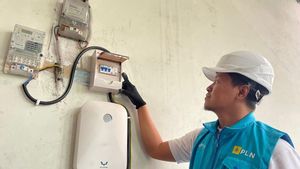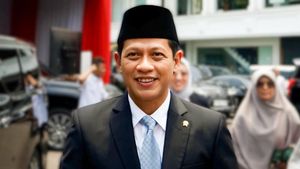JAKARTA Bank Indonesia (BI) has officially released a digital rupiah development design summarized in the White Paper (WP) which outlines the formulation of CBDC for Indonesia taking into account the principle of benefits and risks.
BI Governor Perry Warjiyo said the issuance of this WP was the first step in the Garuda Project', which is a project that oversees various exploration initiatives for various choices of digital rupiah architectural design.
The key to digital rupiah development is, first to emphasize BI's function as the sole authority in issuing currencies including digital currencies. Second, strengthen BI's role in the international arena. And the third is to accelerate the integration of digital payments nationally," he said on Wednesday, November 30.
According to Perry, digital rupiah will be implemented in stages, starting from the wholesale CBDC for issuance, destruction and interbank transfers.
"Then it is expanded with a business model of monetary operations and the money market, and finally, the digital rupiah wholesale integration is end to end," he said.
Perry added, with this WP, it can be a catalyst for the development of CBDC designs in the future, so that the implementation can be in accordance with the context and characteristics of policies.
"Bank Indonesia believes that the benefits of CBDC are able to maintain rupiah sovereignty in the digital era, including supporting the integration of the digital economy and finance and opening up opportunities for more equitable and sustainable financial inclusion," he stressed.
For information, the development of CBDC itself requires the support of all stakeholders, including cooperation with other central banks and international institutions.
"The development of the central bank's digital currency in the future is not an option, but a necessity. The central bank still needs to explore and test it to anticipate the development of digital currencies in the future," concluded BI Governor Perry Warjiyo.
The English, Chinese, Japanese, Arabic, and French versions are automatically generated by the AI. So there may still be inaccuracies in translating, please always see Indonesian as our main language. (system supported by DigitalSiber.id)













